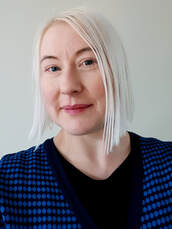What to Expect When You Are Expecting and Beyond So imagine, it's early morning and you are waiting for some life-changing test results. You have been waiting a while to receive these results, so you are very eager to know the outcome. You may, or may not fully realise it at first, but these results will shape the way you will live your life in the future. These results will influence yourself, your partner, family, friends, your work life, how you travel, how you eat and drink, and generally how you experience your daily life. You wait a few more minutes and the results are clear, they are positive. Congratulations you are pregnant! First Reactions to the NewsWhat are the first sensations you experience? Happiness? Shock? Worry? Confusion? Sadness? Or all of these? These are perfectly normal reactions, each one valid in their own right. Some women feel overjoyed by the news, others conflicted. It is important to recognise these feelings. And not feel ashamed or embarrassed if the first emotion is not joy. These feelings may continue through pregnancy into motherhood. Again, it is normal to experience intense or conflicting emotions about being a mom. You will not be the first woman to feel this way, or the last. Pregnancy and motherhood are very personal experiences and we can learn to embrace the rollercoaster of emotional and cognitive changes (as well as the more obvious bodily changes). This is part of the journey. Matrescence: The Birth of a MotherA few months ago I was doing some research about motherhood for our workshop, and I came across a Ted talk by Alexandra Sacks on a new experience called “Matrescence” - the transition to motherhood. Until this moment I had never heard this word before and I was curious to find out more. So I watched it. Several times. I suddenly felt more acceptance of what happens at this time in life when things are changing physically and psychologically. Even though there is an expectation that motherhood brings happiness, this may not be the reality due to the loss of control of how you look and feel when you are going through hormonal changes (similar to that of adolescence). It is ok to feel conflicting emotions: joy, ambivalence, guilt, excitement, sadness, pride, confusion, just to name a few. Alexandra Sacks called this the “push and pull of matrescence”. This is quite typical. As a mother myself, this is something that resonated with me. How We Talk About MotherhoodThis also prompted me to think about my own transition to motherhood. I feel I can be quite open about my positive and negative experiences. However I realised that this is not always the case for other mothers. When I have had contact with other mothers on a personal and professional level, I see differences in the way that women talk about their matrescence. Commonly, I have observed a tendency to say “I’m ok” (may be avoiding talking about the issues), or talking continuously about how great motherhood and their baby are (overcompensation maybe?). Now of course, these could be genuine responses and that the mother is coping fine and enjoying the motherhood experience. But it is also important to acknowledge and talk about the times when it is not ok, when the mother is not enjoying their experiences as much as they would like to. For a healthy psychological well-being, it is important to acknowledge and share the positives and negatives of motherhood. This is ok. Barriers to Talking about MotherhoodSo, this led me to think about why mothers (and mothers to be) may find it challenging to talk about their motherhood transition and their personal experiences? There is no ‘one size fits all’ answer to this question; everyone will have different reasons. And still there was an answer that fitted to most of the mothers I have talked to: stigma. Perhaps society has some role to play in ‘putting on a brave face and getting on with things’ as a mother and the pressure of ‘perfect’ parenting. Motherhood is a lifelong job, and like other jobs it’s ok to admit that motherhood is sometimes hard, tiring, challenging and sometimes not enjoyable. Let’s face it, we don’t enjoy everything in life 100% of the time, so why should motherhood be any different? I am a great advocate of being honest about my motherhood experiences, and I like to encourage others in doing the same; trust me, it’s liberating. The Impact of Not SharingLet’s just consider briefly for a moment the impact of not sharing our experiences, or putting on a brave face when I honestly feel so differently inside. It is possible that it may lead to psychological and physical discomfort or distress, you may have challenges in your intimate and interpersonal relationships, or you may have sleep disturbances. The impact of not talking and addressing some of the challenges may even manifest in depressed feelings or anxiety. A study by Hubert and Aujoula (2018) examined the impact of parental burnout in mothers with children over 18 months of age. Hubert and Aujoula describe parental burnout as “situations where exhaustion occurs as a result of being physically and emotionally overwhelmed by one’s parental role” (Hubert & Aujoula, 2018, p.1). I think that identifying when being in this situation is important. There is lots of research on burnout in relation to work, however studies like this acknowledge the exhaustion mothers may experience and also the impact of parental burnout on their psychological functioning. Our Journey to Authentic MotherhoodThe important thing to remind ourselves that sharing our motherhood experiences with others, can be a first step in facilitating change. This is not to say it will not have its challenges, but being open and honest with ourselves and to others can help to establish a genuine connection and help us to find ways to overcome some of the issues in motherhood. You are not alone. What's Next
Additional ResourcesHubert, S., & Aujoulat, I. (2018). Parental Burnout: When Exhausted Mothers Open Up. Frontiers in Psychology, 9, 1021. https://www.ncbi.nlm.nih.gov/pmc/articles/PMC6028779/ Sacks, A. (2018, May). A new way to think about the transition to motherhood [Video file]. Retrieved from https://www.ted.com/talks/alexandra_sacks_a_new_way_to_think_about_the_transition_to_motherhood Sacks, A., & Birndorf, C. (2019). What No One Tells You. A guide to emotions from pregnancy to motherhood. London: Simon & Schuster Paperbacks.  Written by Helena Virk, M.Sc. Psychologist at AntiLoneliness
0 Comments
Your comment will be posted after it is approved.
Leave a Reply. |
Therapy |
|
